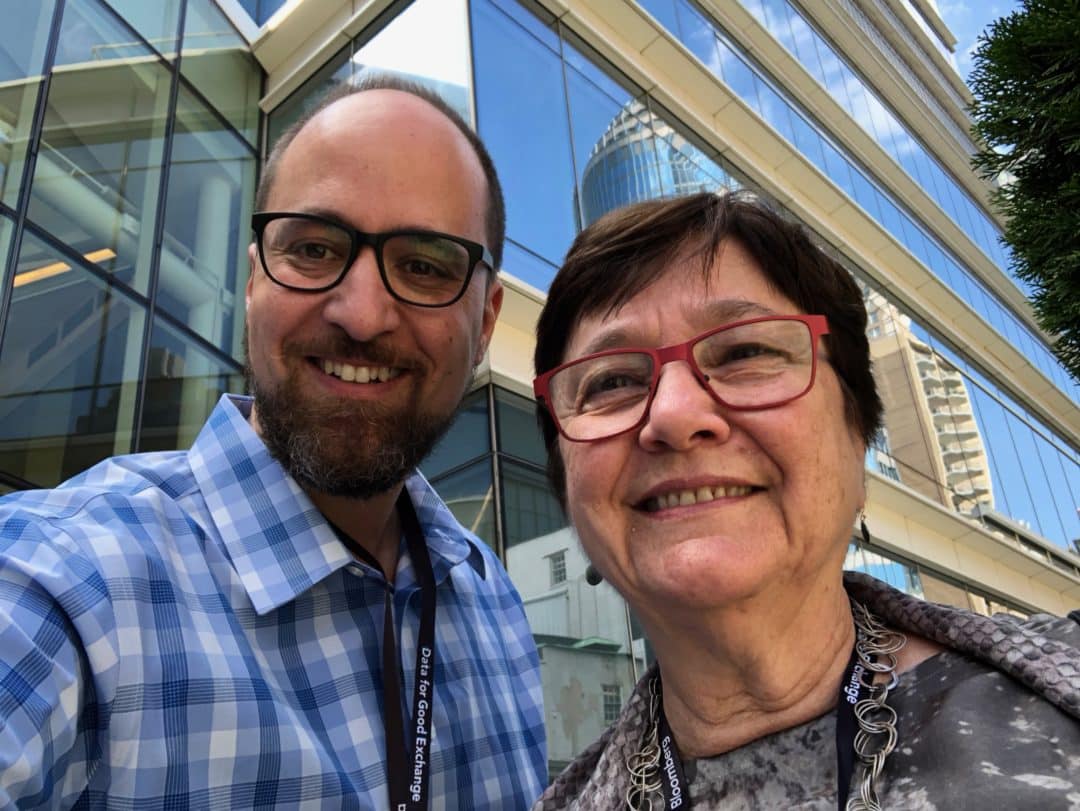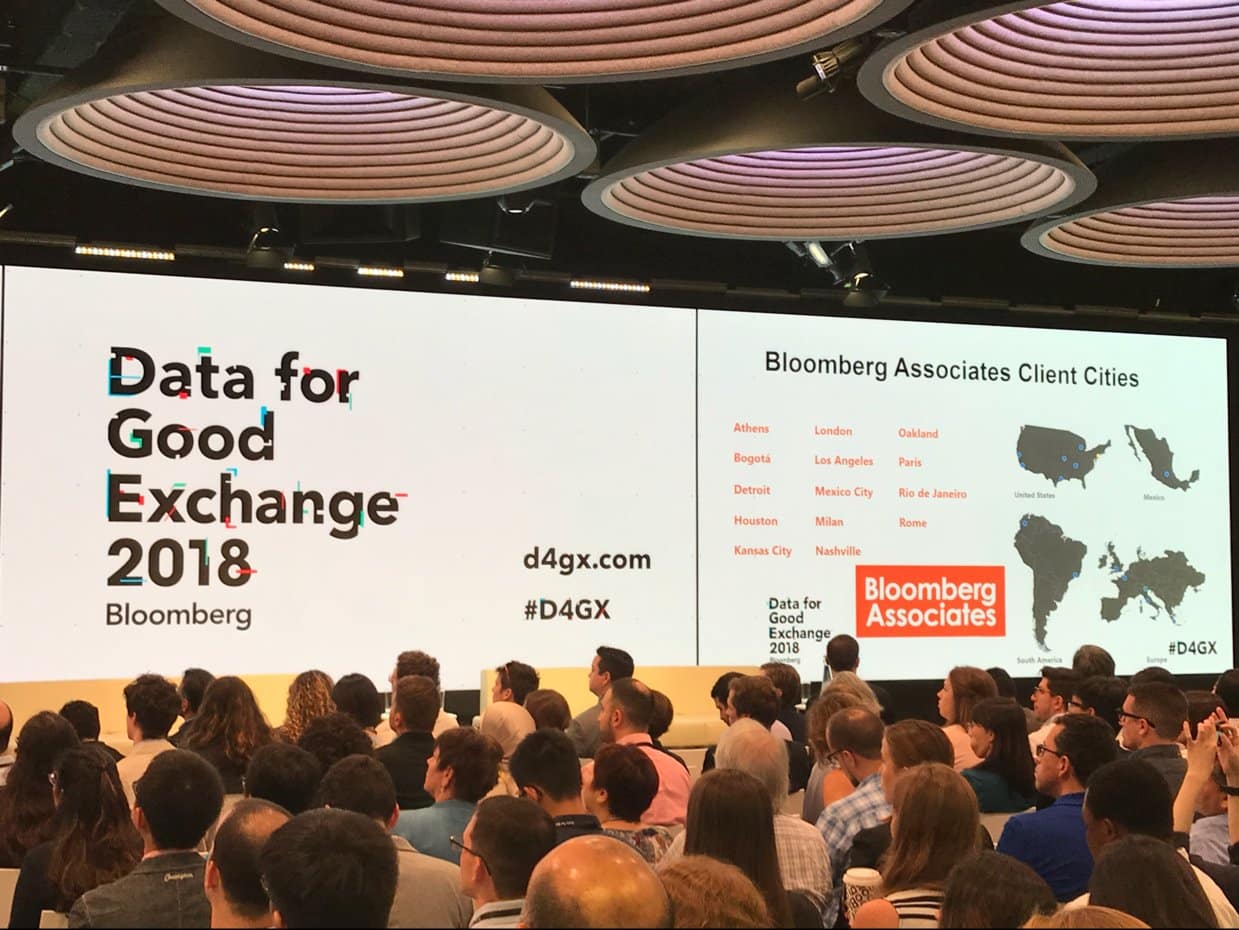On Saturday, September 15, our CEO Suzi Weber and Vice President of Product Matthew Weber attended Bloomberg’s Data for Good Exchange conference in New York City. The annual conference brings together more than 500 data scientists, nonprofit leaders, corporations, policy makers, and researchers with a vested interest in using data to effect positive social change.

Our CEO Suzi Weber and Vice President of Product Matthew Weber enjoying the conference
The ability to aggregate and examine data has revolutionized how organizations are run, the services they provide, and their interactions with their constituencies. The potential of data is a timely topic within the nonprofit industry, as it seeks to leverage the value of the data it collects.
Our CEO, Suzi Weber, shared that a recurring theme of the panel discussions she attended was the obstacles nonprofit organizations are facing in aggregating data. She noted an interesting example, regarding My Brother’s Keeper. Launched in 2014 by President Obama, My Brother’s Keeper (MBK) aims to address persistent opportunity gaps facing boys and young men of color. The Bloomberg Associates are providing MBK with data scientists to aggregate and make available data from four separate sources: leading Houston organizations in social justice, the workforce, education, and medicine. Suzi said the panelists’ faith in the impact of aggregating this data was palpable. They stressed that the purpose of the aggregation was something fundamentally different – it wasn’t for the purposes of research, which the organizations had varied and sometimes troublesome experience with, but to leverage the data to provide immediate and long-lasting help for the people they serve. The greatest challenge they have faced has not been defending against hackers or technical in nature, but rather building trust among the organizations and overcoming legal issues, such as HIPPA, or legal restrictions concerning juveniles in the justice system.
 Rose Hill Gearn delivers her keynote speech (Source) |
 A packed room at the conference! (Source) |
Along with the silo problem is the issue of accessibility. Our Vice President of Product, Matthew Weber, noted that many organizations are seeking ways to collect and share consumable data with the people who need it. Though aggregation and dashboards may not be cutting-edge tools, they can make a profound difference. Matthew especially enjoyed hearing from Rose Gill Hearn, the Principal of Municipal Integrity at Bloomberg Associates, about their initiatives to build dashboards for cities around the world. These dashboards are providing city workers with visibility of the systems around them and have enabled them to react faster.
The conference offered valuable insight into the strides being made in using data science for good, as well as the challenges the nonprofit industry can expect.


